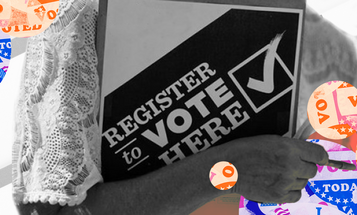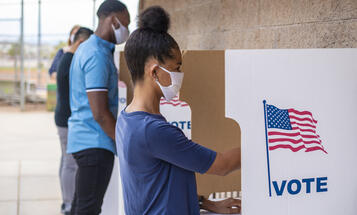
States and Cities With Public Campaign Financing Lead on Paid Sick Leave Policies
Small donor public financing helps underrepresented populations run and win races.
Laura Williamson, senior policy analyst at Demos, told Sludge that that small donor public financing helps underrepresented populations run and win races. For example, she pointed to the findings of a 2013 Demos study after public financing was in place for two election cycles in Connecticut, that Latino representation reached its greatest level in 2012 and women made up one-third of the state legislature.
“Elected leadership is disproportionately white, male, and wealthy, so the single most important thing is that public financing makes it possible for other people to run, mount competitive campaigns, and to win—not only progressives, but candidates who look like and reflect the experience of their constituencies,” said Williamson. “More people of color, working class people, and women in particular are winning elected office, more people who understand why paid sick leave is a ‘need to have,’ not a ‘nice to have.’
“We know, and research draws this line very clearly, that corporate interests especially are hostile to family-friendly policies. Chambers of commerce and large businesses are well represented; they fund campaigns and ask for whatever they want, and politicians help them get it. So when we have small donors funding elections and not megadonors and wealthy interests, we see people who are familiar with working class concerns and more people talking to and hearing from communities that would benefit from paid sick leave and other policies.”


